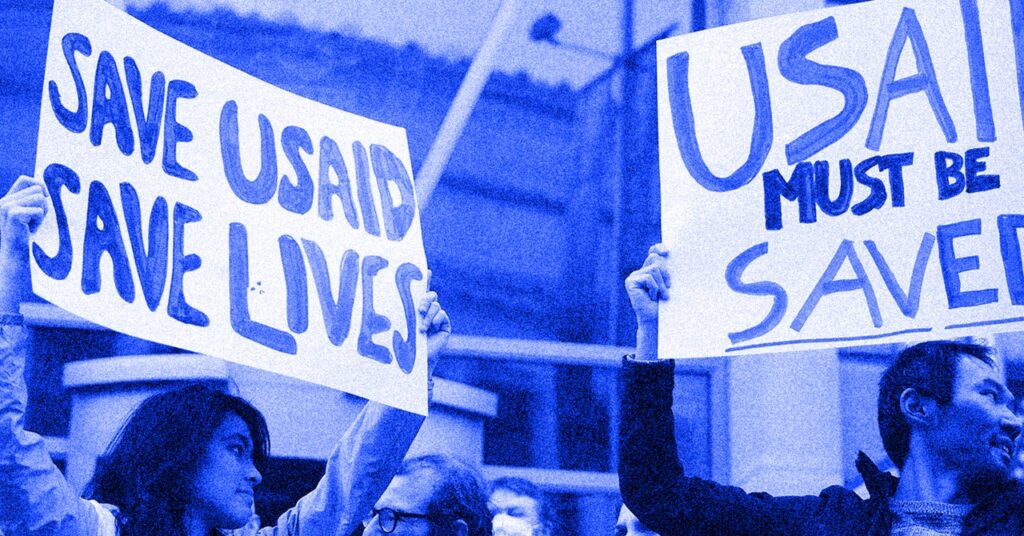
“Our partners say that for some survivors they are in touch with inside the scam centers, even if they can somehow manage to get out, they then have no place to put them. Then, the survivors have no money for a flight home and no place to go, so they get re-recruited into the centers, as they do not have any real alternative options,” Macher says. “Some survivors have injuries like broken bones from jumping out the window to escape, and now the organizations have no money to put them into the hospitals, and without medical care, the survivors could become paralyzed.”
Multiple sources tell WIRED that organizations that have relied on funding have had to stop or reduce work and lay off staffers. Macher, who has been running working groups with members of her network over the last week, says some survivors of scam compounds are being given assistance to return home; however, shelters that temporarily house them and provide care have been impacted. “Without a safe and dependable shelter to house them after their escape, some survivors opt to return to their exploitative work inside the scam centers despite knowing the risks,” Macher says.
“There are shelters in neighboring countries like Cambodia and Myanmar for people who’ve just been rescued, and there are helplines and so on that have now lost all of their funding overnight,” says Michael Brosowski, the founder of Blue Dragon, an impacted charity that has rescued more than 1,700 trafficking victims, including keeping people from being trafficked into brothels connected to online scamming.
Brosowski says Blue Dragon has been working to reduce the worst of the harm caused by the funding freezes. “We’ve been scrambling to work out what we can cut, how can we scale back, without losing the most direct work,” Brosowski says. For example, training programs for social workers who aid survivors of trafficking may have to be cut, Brosowski says.
Even if some funding does return—the State Department’s freeze is set to be in place for 90 days—organizations supporting victims may never be the same as staffers are forced to get other jobs or move away from the areas where they have been working locally with survivors. This loss of expertise will be extremely detrimental to the relief efforts, sources say.
“They’ve damaged relationships with local partners or authorities with whom they used to be working regularly to address these issues,” say two researchers at a global think tank who have had their work on policy recommendations on tackling scam compounds to the US government disrupted.
Aside from humanitarian efforts, the funding pauses are likely to allow, even temporarily, criminal organizations to further flourish. Some of the funding cuts impact programs designed to help identify potential criminals and assist local law enforcement efforts, according to one government affairs official at an international NGO with multiple US grants.
“Identifying criminal networks, identifying the bad actors, sending the information to the National Security Council. Everything that should be going on is stopped,” add the two global think tank researchers.
Ultimately, all of this means that trafficking victims will be trapped working in unimaginable conditions while more people in the US and around the world will be at risk of becoming victims in the ongoing fraud run from the compounds.
“These scam compounds, they scam people who are in the USA,” Brosowski, of Blue Dragon, says. “The US government might save hundreds of millions of dollars from cutting these sorts of programs, but the scammers are going to take billions.”





